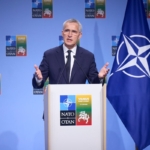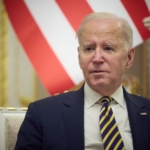The mainstream rhetoric in the Middle East tends to deliberately or unintentionally portray that the Russian have always posed an imminent threat to Israel’s security neglecting the significant role the Soviets played in the creation of the Jewish State. Without such support at the very beginning, Israel would not have been born.
[subscriptionform]
[level-european-affairs]
Unsurprisingly, the recent military coordination between both countries regarding the on-going proxy war in Syria did not emerge out of nowhere and is not only based on common interests, but can be traced back to the history of the formation of Israel in which Russia played a vital, if often forgotten, role.
Many believed that the birth of Israel owed a lot to Stalin’s Russia. However, others argued that this was unlikely since the Stalinist period was the toughest era in the modern history of Russia due to the restrictive, intolerant and totalitarian policies that Stalin adopted. A number of discriminatory policies against Soviet Jews were carried out during the ‘Soviet Jewry’ period in the early 1950s, which led to a total embargo on Jewish immigration from Eastern Europe.
Taken into consideration the large number of Jewish officers who notably contributed in Soviet arms production during WWII, it would have been a gigantic advantage the fledgling state to increase its manpower both in number and experience.
Despite this, Stalin played an essential role in the formation of Israel particularly during the vote on the UN Partition Plan in 1947, where his Ambassador Andrei Gromyko deliver an unprecedented speech that addressed the horrible fate that Jews have undergone in Europe and their right to have their own state. Moreover, Stalin ordered his allies in the Eastern Communist States to support the establishment of Israel as the decisive bloc that provided the two thirds majority required to win the vote at the UN. Until the late 1940s, Stalin’s Russia supported Israel politically, militarily, and demographically.
Demographically, the USSR made a decisive contribution in increasing Israel’s manpower in which it was one-third of total inhabitants at that time. Stalin supported the Jewish Agency immigration operations, where almost 67% of Jewish immigrants who arrived in Palestine came from Eastern Europe. He also supported Israel politically at the UN through voting against resolution 194, which demanded immediate return of 700,000 Palestinian refugees forcefully expelled from their homeland and absolved Israel of responsibility and blamed Britain.
Militarily, Stalin permitted the Skoda factory to supply the struggling Israeli forces with heavier artillery during the 1948 War. By the early 1950s, Israel received military aid from Stalin’s Russia that exceeded its expectation without having to worry about its relationship with Western powers. Even David Ben-Gurion publicly announced that without the Soviet support at the very beginning, Israel would have never survived the full-scale attack of Arab armies.
However, the explicit objectives of the Soviets support to Israel remained ambiguous. So why did Joseph Stalin support Israel despite of his totalitarian policy? What was his strategy?
It was obvious that Stalin had two complicit strategic ends. Firstly, he aimed at supporting the creation of Israel in order to bring disorder and political unrest to the region and hence, seize the influence of the British Empire. Secondly, he believed that Israel would become a strong ally to the USSR particularly with its socialist ideology that it adopted in the first few years of its establishment.
In the 1950s, Golda Meir put Israel in a neutral position during the Cold War and refused to militarily participate alongside the US in the Korean War. However, Israel relation with Moscow begun to deteriorate because of a number of political events that provoked Stalin’s power, particularly the incident of 1953 Doctor’s Plot.
Israel-USSR relation encountered another drop following Stalin’s death in 1953, where his successors relatively turned against Israel through signing arm deals with Arab states such as the Egyptian-Czechoslovak deal in 1955. As late as 1980s, the USSR signed billion of dollars of arm deals with its Arab clients, which altered the balance of power in the region. As Ariel Sharon declared that Israel faced two sources of existential threats; the Arab military build-ups and the Soviet expansionist policy that supported the Arabs politically and militarily.
Following the dissolution of the USSR, Israeli-Russian relation was restored to the extent that both countries have been sharing common interests in the periphery of the Middle East. The recent bilateral efforts between both countries to avoid unintended conflicts of their airpower in Syria, explicitly demonstrate that Putin’s Russia is still committed to Israel’s security. Perhaps the recent targeted-killing strike of Samir Al-Kuntar in Syria portrays the close Israeli-Russian relation. But not as close as in late 1940s, where, without the Soviet support at the very beginning, Israel would not have seen the light.
Redazione
[/level-european-affairs]







